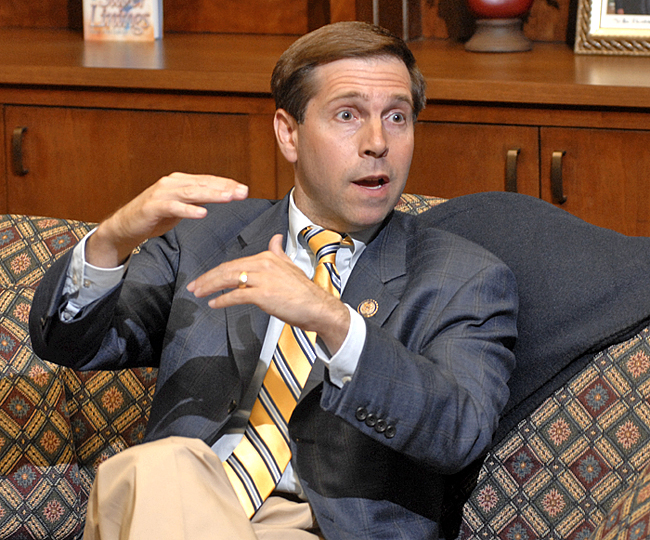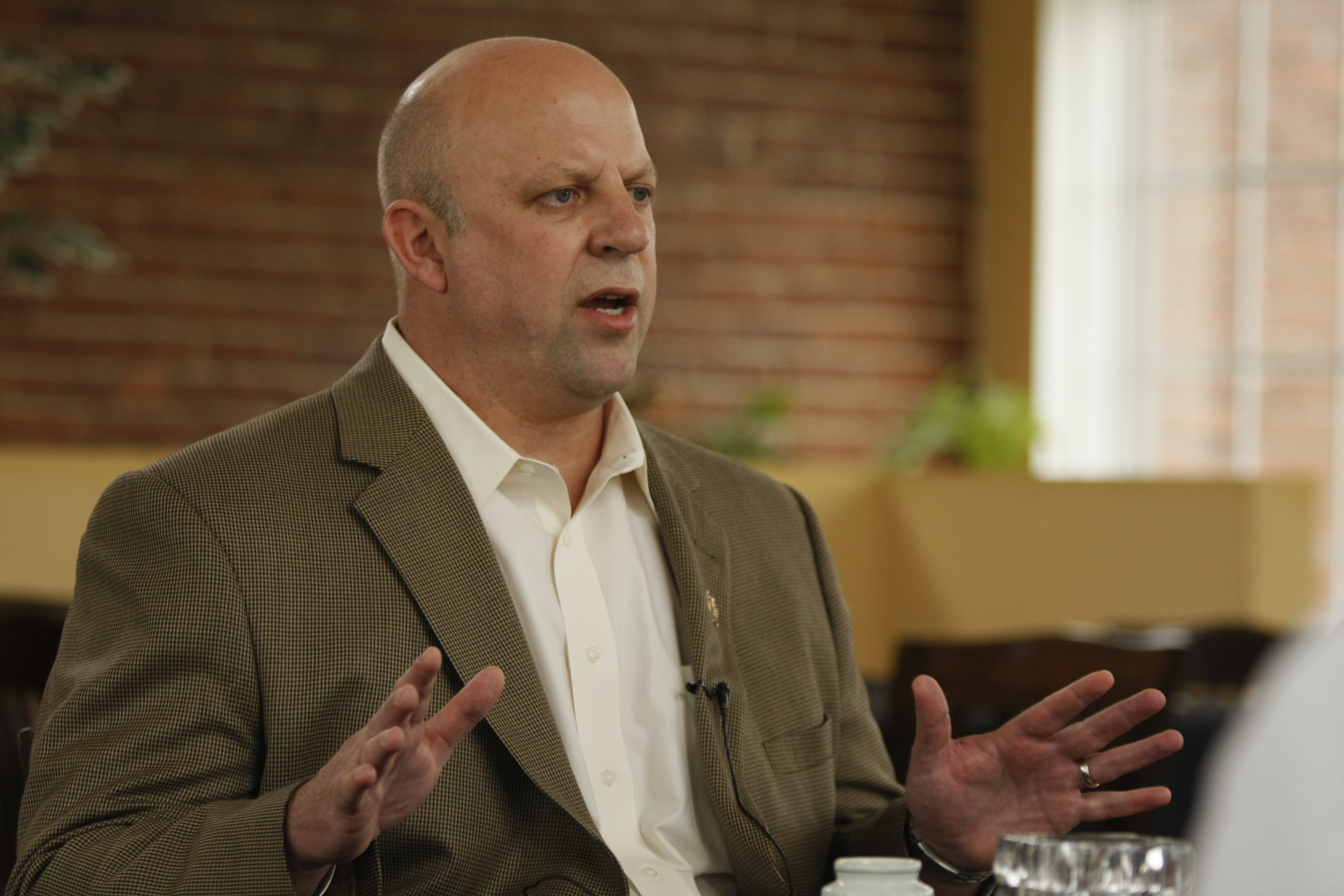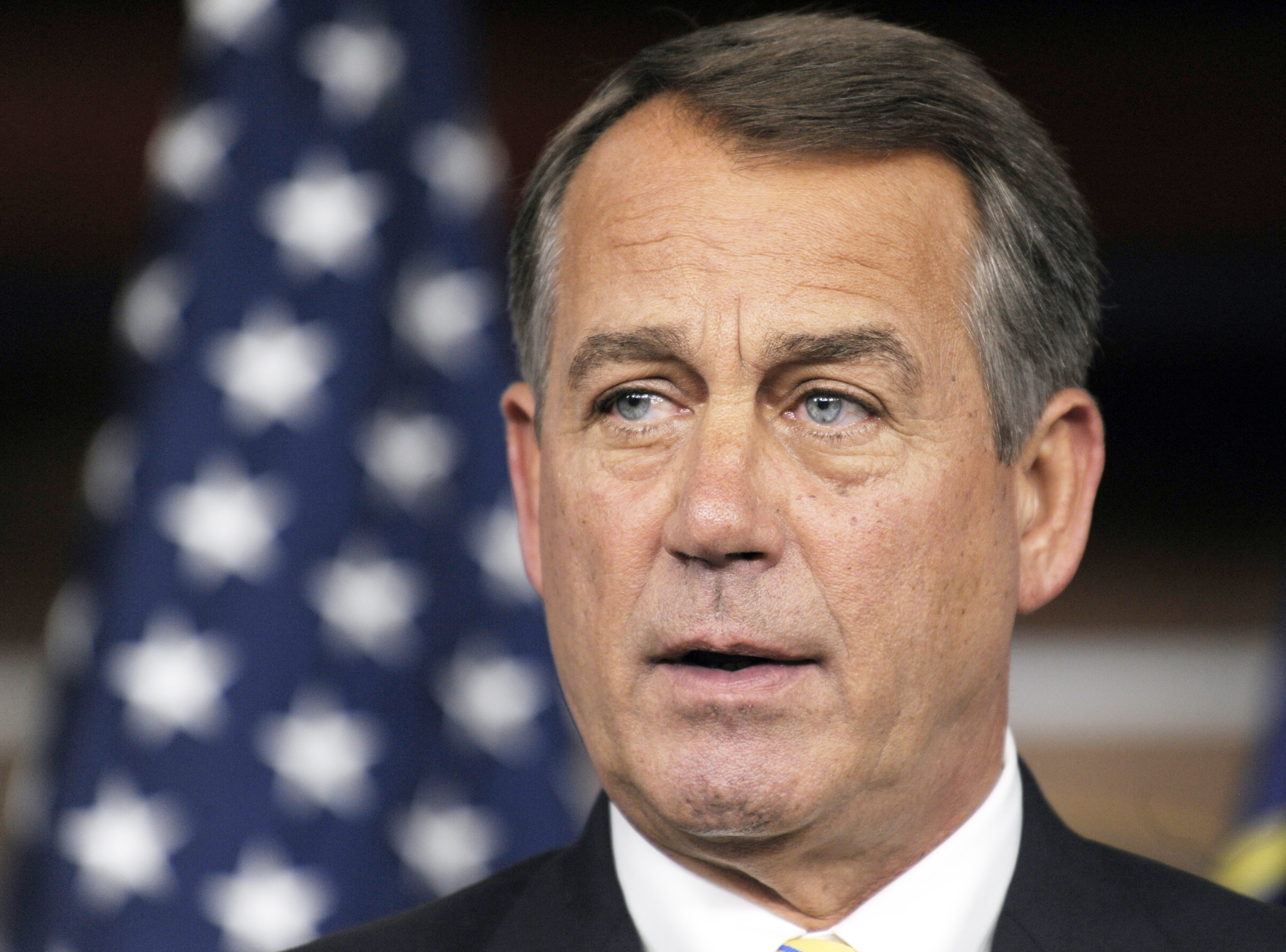Last week, U.S. House Speaker John Boehner issued a strong warning to freshman Republicans opposed to raising the nation's debt ceiling: Vote your way and watch as our government slides into "job-killing default."
It was a visceral threat to U.S. Reps. Chuck Fleischmann and Scott DesJarlais, the Tennessee Republicans who based their first political campaigns on job creation.
But they shrugged it off, eventually rebuffing the leader of their party in the House and casting two of 161 House votes against immediately hiking the nation's $14.3 trillion debt limit and eliminating trillions in government spending over the next decade.
It didn't matter because 269 of their House colleagues and 74 U.S. senators supported the proposal, effectively preventing economists' predictions of higher interest rates, a falling dollar and shaky markets if Congress had missed Tuesday's deadline for a deal.
"That was all hypothetical," Fleischmann said in a phone interview Tuesday. "Leadership would have gone back and negotiated another deal."
Other political observers who witnessed epic Washington squabbling and panic at the voter level aren't so sure.
"It's easy for Fleischmann to say that since [default] didn't happen," said Richard Wilson, a political science professor at the University of Tennessee at Chattanooga. "He may be right -- we could have gone into default, and everyone would have scurried around trying to put some kind of debt ceiling plan in place."
According to news reports, the deal will save more than $900 billion over the next decade by limiting annual spending for most federal agencies and programs. President Barack Obama will be allowed to increase the debt ceiling by at least $2.1 trillion, enough to meet the government's loan obligations until a few months after the next presidential election in November 2012.
The bill also creates a 12-member congressional committee, made up of six Democrats and six Republicans from the House and Senate, that is tasked with reducing deficits by another $1.5 trillion over 10 years, potentially outscaling the debt increase with future cuts.
It wasn't enough for some House members.
"The math is faulty here," DesJarlais said Tuesday. "You're raising the debt ceiling by $2 trillion immediately and the cuts take place over the next 10 years. It doesn't add up."
Fleischmann agreed, saying potential defense cuts and a lack of a constitutional amendment mandating a balanced federal budget kept him from voting for the final plan.
Wilson said future political concerns drove the thinking of both politicians, who find themselves vulnerable to a rightward tilt across America's political landscape. If they had not voted against the bill, the tea party -- which was vehemently against raising the debt ceiling at all and was not open to compromise -- might have been mad enough to launch more-conservative candidates against them in the upcoming elections, Wilson said.
"They're both worried about a primary challenge from the far right ... their 'no' votes are expected if you look at their situations from their perspective," Wilson said. "I believe this nation is very lucky that we've got enough moderates in the middle to pull this thing off."
Fleischmann and DesJarlais said political concerns had nothing to do with how they voted.
"There were certainly no threats in my case," DesJarlais said.
Boehner lobbied both
A July 28 New York Times article describing intensive persuasion efforts by House leadership in the days leading up the debt-ceiling vote noted Fleischmann "did not look as though he had been picnicking" as he left Boehner's office last Thursday, despite pizza boxes strewn about the speaker's desk.
"Couldn't be further from the truth," Fleischmann said. "There was absolutely, positively no arm twisting whatsoever in their conversations with me."
Fleischmann, whose district includes Chattanooga and Oak Ridge, said the strain apparent on his face was more about getting to the House floor for a series of votes that lasted five minutes each.
"My meeting with the [Boehner] took about 4 minutes and 30 seconds of that," he said. "I haven't missed a vote in Congress yet."
DesJarlais, who represents Tennessee's mostly rural 4th Congressional District, said House leaders lobbied him as well. But, he added, they all knew he wouldn't support debt-hike legislation because he was one of nine GOP members to vote against earlier measures that similarly coupled spending cuts with a debt-ceiling increase.
"I don't know how borrowing more money improves your credit rating," he said.
Asked how he'd defend his vote had America fallen into default, DesJarlais pointed out his support for the Full Faith and Credit Act, which would have "prioritized existing revenues toward loans, military and seniors."
The Full Faith and Credit Act has not made its way out of the House Ways and Means Committee, records show.
Despite their "no" votes, both congressmen extolled the final legislation because of its spending cuts and "lack of new tax revenue," as Fleischmann put it.


